On Monday, October 29, the following testimony by Health & Medicine’s Executive Director Margie Schaps on the proposed budget for Cook County Health was presented to the Cook County Board. Schaps urged the Board to approve a budget that will allow the Health System to succeed and flourish while allowing the it to fully implement a strategic vision that will ultimately reduce costs and improve the health of the residents of the County.
My name is Margie Schaps, and I am the Executive Director of the Health and Medicine Policy Research Group. I want to thank the Board for allowing me the opportunity to testify in support of a fully funded Cook County Health and Hospitals system budget. Health and Medicine has since 1981 been an organization committed to developing and supporting systems and policies that create a healthier society.
I have testified before the County Board and the Health System Board since our inception and always in the interest of supporting a strong Cook County Health System for the most marginalized and excluded people in our County. At Health & Medicine we spend a lot of time researching best practices and developing solutions that will provide better, more efficient and effective health care for all—particularly those served by pubic systems.
We are at a crossroads right now. Federal leadership threatens access to healthcare for the poor and for all. The ACA is hanging on by a thread, but here in Illinois we at least have a commitment to the continuation of Medicaid expansion. This Health System is the cornerstone of our commitment to health care for all. The County Health System has just made a big leap in taking on the responsibility for caring for nearly 100,000 additional people over the next year. Now is a moment that the health system can be a leader in developing a high quality, highly efficient health care delivery system, focused on primary care, prevention, addressing underlying social determinants of health, high touch intervention for those with multiple chronic conditions, mental illness, substance use disorders, and more. We could be a national model for efficient and effective care that will truly improve the health of the public and lower medical costs in the long run. We know how to do this and we can do it with leadership, and yes, continued investment in the system.
Public health services and healthcare to detainees at the jail, and care for the thousands of uninsured in the county, are services that are our obligation as a County. They are in the mission statement of the County and the health system, and they are services that are not covered through any mechanism other than the County tax support. Lowering the subsidy provided to the Health System would mean reneging on our obligations to serve, reducing our ability to respond to things such as foodborne illness outbreaks, and health services for detainees that might help them stay out of jail. Public health threats like Zika require intense surveillance and intervention by the public health department—again, not inexpensive, but imperative and with dire consequences if underfunded.
CCHHS is unique and is a treasure to our county. Its mission is clear and lays out a commitment to caring for all regardless of ability to pay. Its practice is priceless: they train healthcare providers who are mission-driven and expert in working with patients with complex needs; they have forged relationships with health centers, support services, hospitals, and related services across the county to ensure continuity and high quality care for their patients.
We recognize that these are difficult financial times for the County and that the implementation of the ACA and expanded numbers of Medicaid covered people in the County System may lull some into believing that the new money flowing in is enough to cover all of the services the Health System provides. This is NOT true—we still have hundreds of thousands of people in our County without health insurance, some not eligible for insurance. Many of the newly insured are seeking healthcare for the first time in decades and present with complex behavioral and physical health needs—requiring more staff time, a greater array of services, and therefore at a greater cost than the System was accustomed to. Due to federal cutbacks and threats to the ACA, navigators who help people sign up for insurance have been eliminated from the federal budget, leaving many who might be eligible for Medicaid or Marketplace coverage not even aware of it, and placing additional burden on the public sector.
Finally I think we must not take new taxes off the table for discussion. Other municipalities have established differential property tax rates for vacant properties. The District of Columbia taxes occupied residential property at $0.85 per $100 value, but vacant properties at $5 per $100 and blighted property at $10 per $100. If implemented in Cook County, a policy like this would generate millions and incentivize building on vacant lands.
The County is making tremendous progress in reducing the numbers of people who are incarcerated—but those that are in the system require extensive health and behavioral health interventions. New programs and collaborations are commendable but will not immediately reduce expenditures. It is the job of this Board to approve a budget that will allow the health system to succeed. We must continue to provide the needed resources for the System to flourish, provide the services they are obligated to provide, and allow the System to fully implement the strategic vision that will ultimately reduce costs and improve the health of the residents of the County. We cannot abandon the most marginalized in our county. We must fully support the health system.
